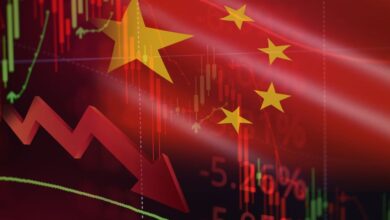Navigating The Future: Global Automakers Forge Strategic Partnerships At Beijing Auto Show

$0700.HK
In a significant shift in the global automotive landscape, the Beijing Auto Show this April became a pivotal arena for strategic alliances. Global automakers, including industry giants Volkswagen and Toyota, have intensified their efforts to forge meaningful partnerships with Chinese firms, signaling a strategic pivot towards the burgeoning electric vehicle (EV) market in China. The event highlighted a marked change in strategy among some of the world’s leading car manufacturers. Previously dominant in China’s auto sector, foreign brands have seen a decline in their market share, with local Chinese EV makers like BYD taking the lead. This shift was underscored by a series of new collaborations aimed at integrating advanced technologies such as artificial intelligence (AI) and big data into automotive applications.
One of the most notable announcements came from Toyota Motor, which revealed a new partnership with Tencent, a major player in China’s tech industry. This collaboration aims to leverage Tencent’s expertise in AI and big data to enhance Toyota’s automotive technologies. Similarly, Volkswagen has been actively promoting its partnership with XPeng, a Chinese EV startup, as part of its strategy to maintain its foothold as a leading foreign automaker in China.
The urgency of these partnerships is driven by the rapid evolution of the Chinese automotive market, which has become increasingly competitive due to the rise of local manufacturers and shifting consumer preferences towards EVs. The decline in market share for foreign brands in China is telling. Data from the China Association of Automobile Manufacturers shows a drop from 57% to 48% over the past two years.
In response to these challenges, foreign automakers are not only seeking partnerships but are also adapting their strategies to better align with the Chinese market. For instance, Volkswagen has emphasized its commitment to localizing production and deepening local partnerships, aiming to secure its position in the market through 2030. This approach is mirrored by other European and Japanese automakers who are actively seeking to close the technological and market penetration gap with their Chinese counterparts.
The Beijing Auto Show also served as a platform for discussing future mobility solutions. Toyota, for example, took the opportunity to highlight its new tie-up with Tencent during the event. Hiroki Nakajima, Toyota’s Chief Technology Officer, emphasized the potential of this partnership to create products and services that resonate more closely with consumers, thereby shaping the future of mobility. However, not all executives shared an optimistic outlook. Some expressed concerns about the pace at which Chinese EV makers are innovating, which significantly shortens the vehicle development cycle. This rapid pace poses a challenge to traditional automakers who are accustomed to longer development timelines.
The strategic shifts observed at the Beijing Auto Show reflect a broader trend in the global automotive industry, where traditional power dynamics are being challenged by technological advancements and changing market dynamics. As foreign automakers recalibrate their strategies to navigate these changes, the partnerships formed with Chinese tech giants could be crucial in determining their success in the world’s largest auto market.
The Beijing Auto Show has not only showcased the latest in automotive innovation but has also highlighted the strategic realignments taking place within the industry. As global automakers adapt to the fast-evolving landscape, their ability to integrate new technologies and form strategic partnerships will likely be key factors in their ongoing success in the Chinese market. The developments at this year’s show may well set the tone for the future of global automotive strategy.



